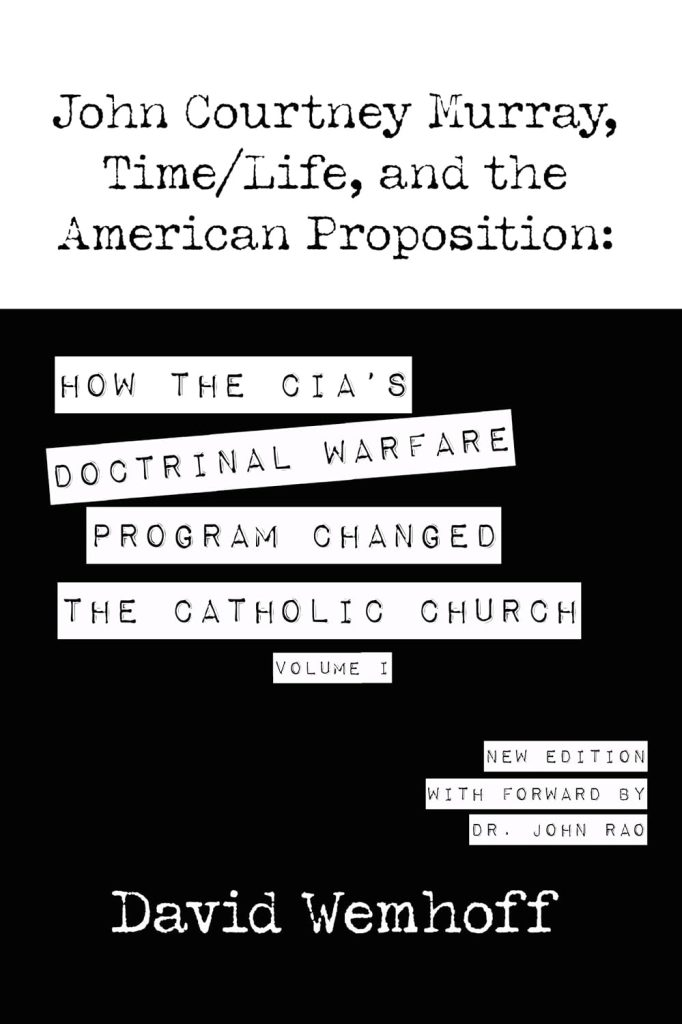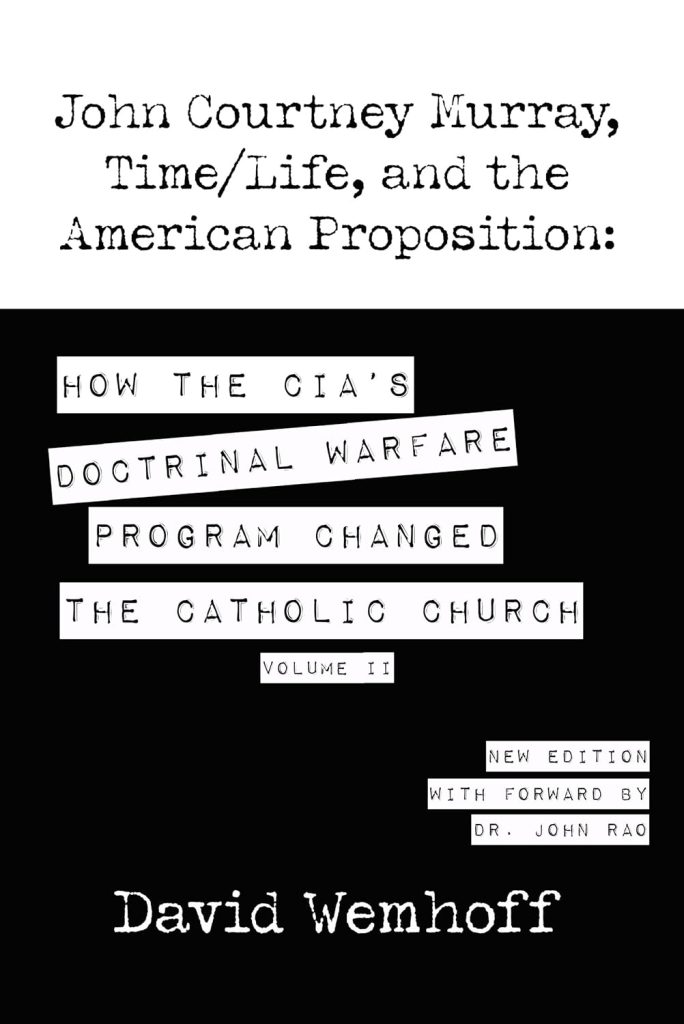The American Proposition books are an historical account of the early days of the Cold War and present a discussion in the Catholic Church over church state relations.


The movement to spread American ideals globally began with President Franklin D. Roosevelt’s 1941 Four Freedoms speech, signaling the U.S. commitment to shaping the future of the world. This initiative was carried out through a strategic alliance between media moguls, intelligence agencies, and powerful business elites, all of whom promoted the American vision of a just and prosperous society as universally beneficial. A key focus of this campaign was the Catholic Church, which by 1965 had been successfully aligned with American social principles. Central to this effort were Jesuit priest John Courtney Murray and media magnate Henry R. Luce, whose Time/Life empire played a pivotal role in spreading the American proposition worldwide.
At the heart of the Cold War, a global ideological struggle between the U.S. and the Soviet Union, was a lesser-known but equally impactful campaign of doctrinal warfare. U.S. government agencies, alongside influential media figures, sought to reshape global thought and align intellectuals, leaders, and elites with the American vision of freedom and democracy. Henry R. Luce’s Time/Life empire was a critical vehicle for spreading American ideals through media, which effectively countered the appeal of communism. This campaign went beyond military tactics; it focused on securing intellectual and cultural dominance, ensuring that the American narrative of liberty would replace competing ideologies around the world, establishing the U.S. as the global standard.
America’s foundation lies in a set of beliefs, not a shared ethnicity, language, or religion. This idea, introduced by Thomas Paine in Common Sense (1776), formed the basis of the American identity and continues to resonate globally. Paine’s emphasis on liberty, independence, and self-determination laid the philosophical groundwork for the nation’s future ambitions, both domestically and internationally. These principles of individual rights and freedom became central to the doctrine of Americanism, which sought to spread these ideals worldwide. The American Proposition explores how these core beliefs were instrumental in shaping global perceptions of America and positioning it as the ideological and political center of the modern world.
A collection of poems about the happy, the sad, the trivial, the sublime, the seen, the heard, the felt and more by a participant and observer of life in the late Twentieth and early Twenty First Century America.